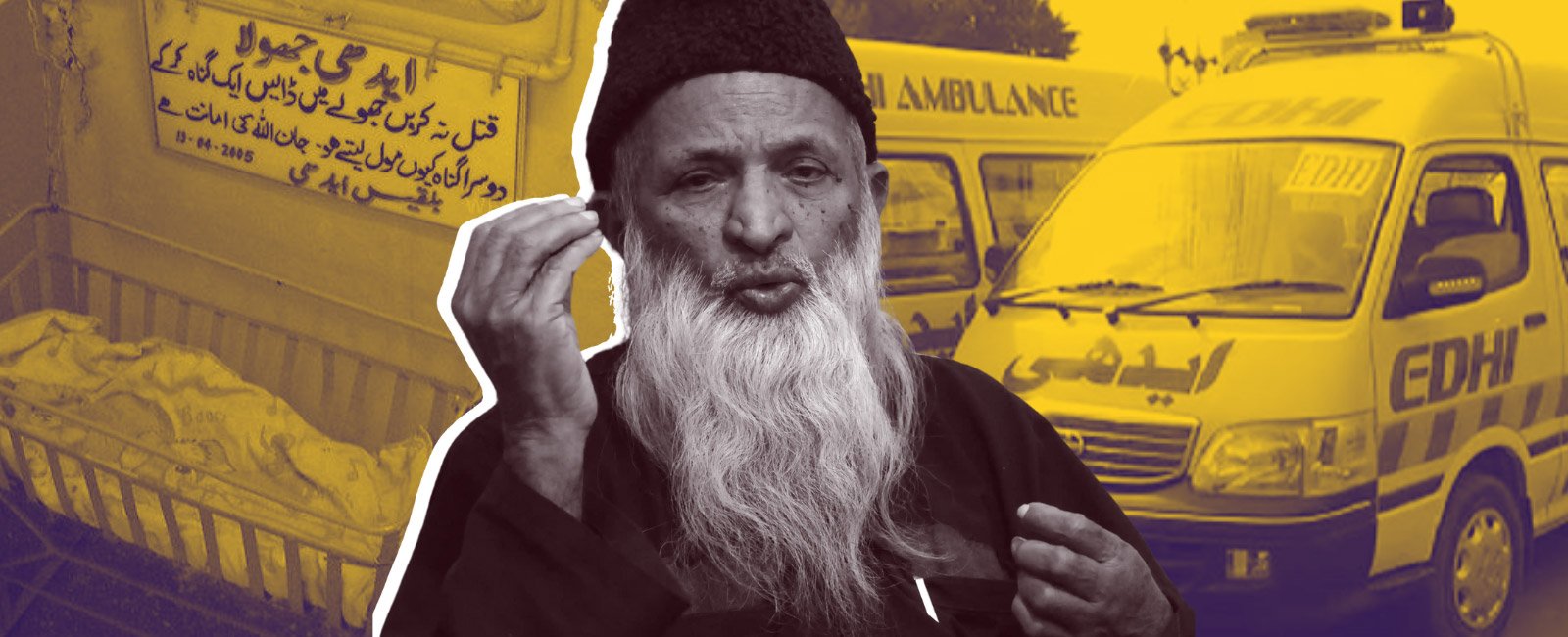How Edhi's passionate simplicity disrupted philanthropy for the better
It's time to embrace Edhi’s principles — prioritising humanity over extremism, racism while rejecting divisive ideologies that serve no one

For a moment, think of the word ‘philanthropy’ — a term rooted in Greek, meaning “loving people,” as defined by Merriam-Webster. Now, envision a person who is the true epitome of this ideal. Does a face emerge in your mind? For many in Pakistan, that face is unmistakable.
Today, the nation celebrates the birth anniversary of such a man — Abdul Sattar Edhi — who redefined philanthropy in Pakistan, setting an unparalleled standard for selfless humanitarian service.
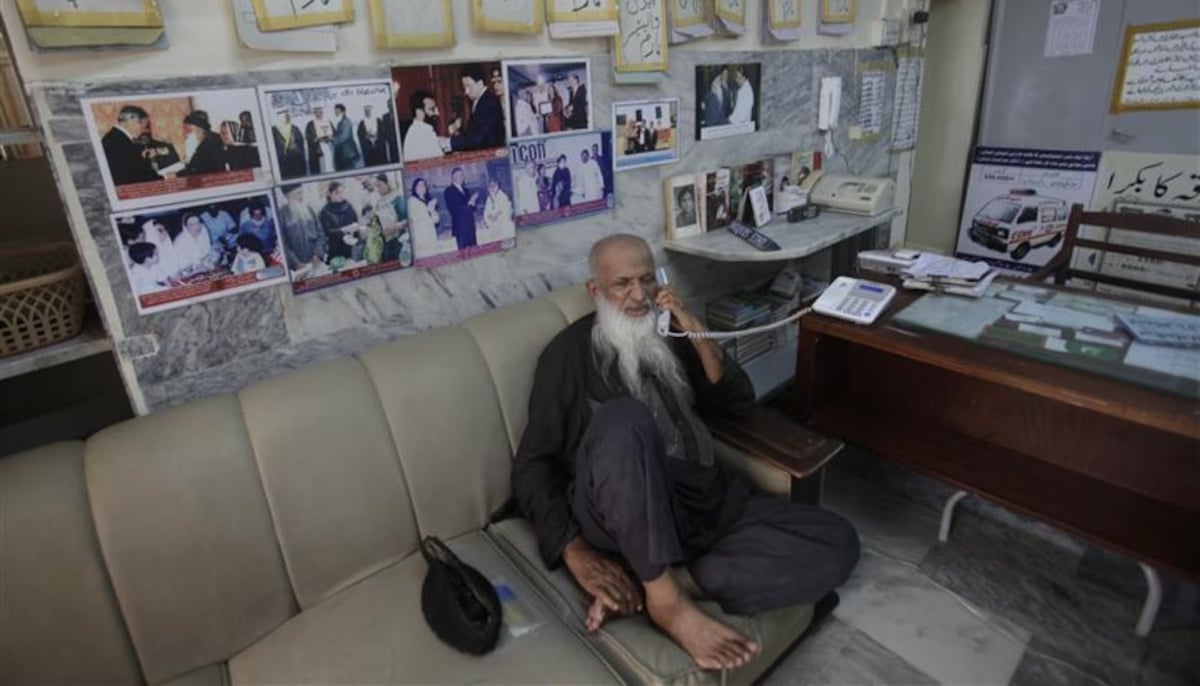
Geo.tv spoke to changemakers who are continuing Edhi's mission, working tirelessly to uplift the marginalised and providing hope in an uncertain world.
What’s the Edhi way?
Speaking of Pakistan’s towering icon of philanthropy, who "chose a life of utter simplicity," Faisal Edhi, son of the late Edhi sahib, reflects on his father’s unwavering traditionalism — which he truly embodies — with heartfelt devotion.
“In our region, it is common for fathers to involve their sons in their work from an early age, whether as carpenters, farmers, or ironsmiths,” Faisal said reminiscing about his early years of training — years not spent on farms or in workshops, but in places steeped in death and sorrow.
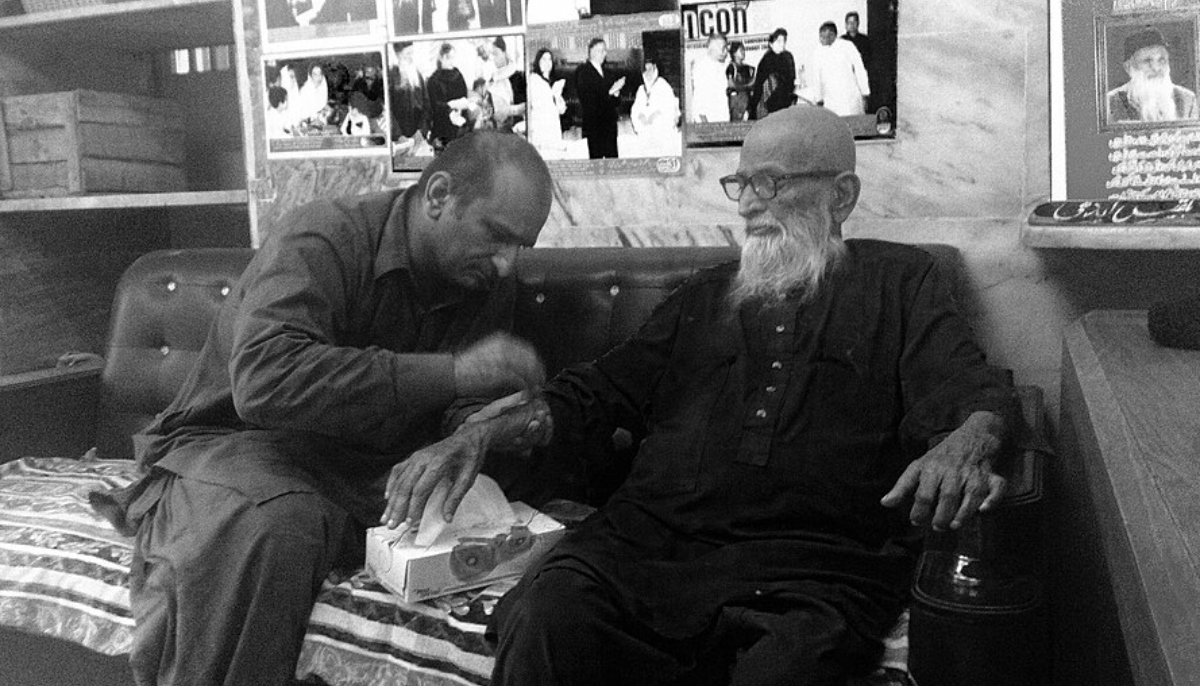
"Edhi sahib took me with him during emergencies. I vividly remember the 1986 Pan Am Flight 73 hijacking — I was with him. The same year, after the Bohri Bazaar bomb blast in Karachi, I accompanied him to Jinnah Hospital, where he helped families identify the bodies of their loved ones. I was just ten years old, terrified, but watching him, I learned invaluable lessons in courage and service,” said Faisal, sharing his father’s many emergency missions he was a part of.
Built on simplicity
“Edhi sahib had four guiding principles — simplicity, honesty, punctuality, and hard work,” says Faisal, who firmly believes that organisations that uphold this philosophy endure the longest.
“Whether in the public or private sector, any institution that follows these principles will find success. Even individuals who apply them to their lives will thrive. The Edhi Foundation’s simplistic approach to operations helped it gain the public’s trust, leading to increased donations and allowing the organisation to expand its outreach.”
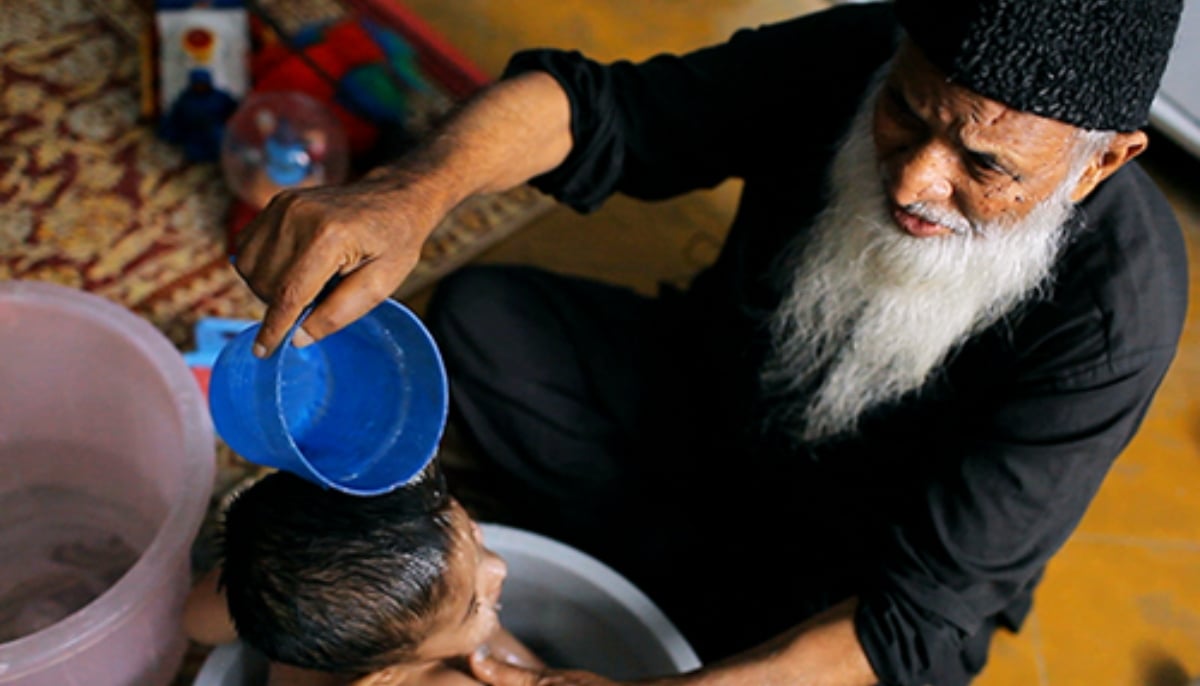
Faisal explains that before Edhi, charitable efforts in Pakistan were largely community-based. He highlights his father’s role in transforming philanthropy by founding a humanitarian organisation that provided aid without discrimination based on race, ethnicity, or religion. "Today, several organisations in Pakistan prioritise humanitarian service over sectarian or community-based aid," says Faisal, referring to the model established by his father.
Unbiased inclusivity
Edhi’s ethos emphasises service without discrimination. Discussing how this principle shaped philanthropic establishments, Dr Abdul Bari Khan, Founder and President of the Indus Hospital and Health Network (IHHN), analyses Edhi’s value system.
“Charity must not be confined to a single group, ethnicity, or religion as true love for humanity requires transcending religious, ethnic, and all other boundaries.
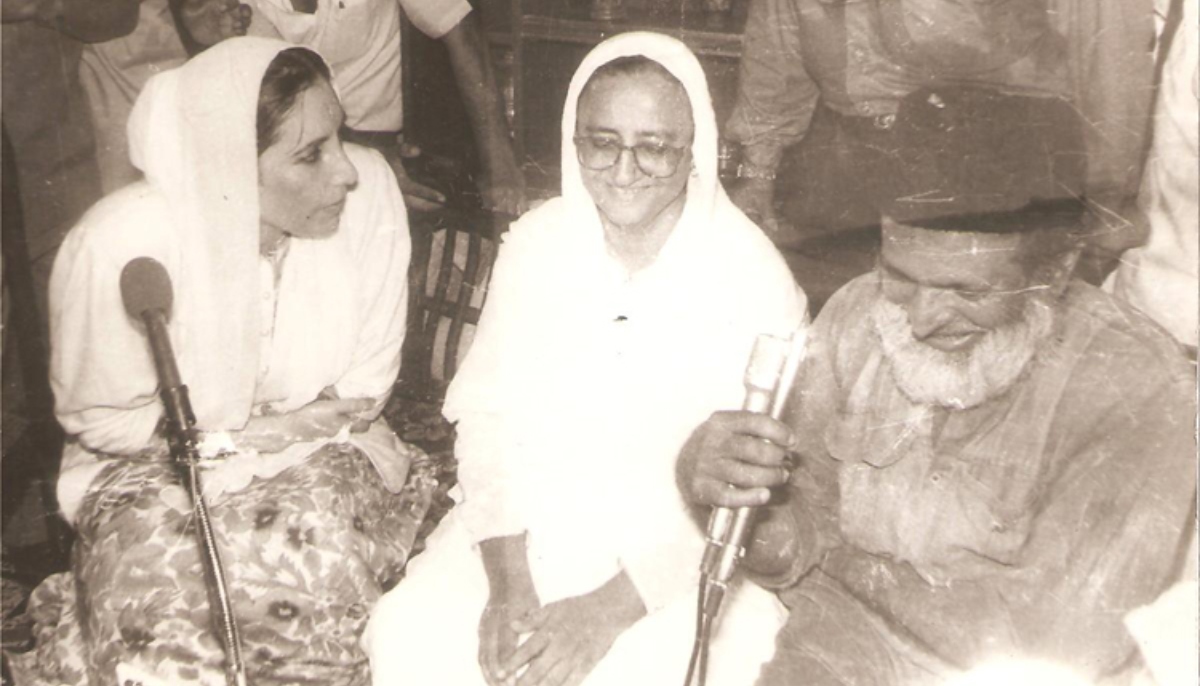
“Edhi sahib’s work was so visible and impactful that it proved the true essence of charity lies in helping and saving lives, regardless of who they belong to.
“From day one, we always wanted to streamline charitable resources but with dignity and compassion," Dr Bari said explaining how he inculcated Edhi’s principles in his organisation.
Sabina Khatri, Founder and Chairperson of Kiran Foundation (KF), passionately talks about how profoundly “the Edhi way”, has inspired her foundation’s philanthropic philosophy.
According to her, who’s carrying forward Edhi’s legacy of “being human first,” Edhi sahib’s informal, direct, and deeply personal approach to service resonates with how the KF operates — by placing human connection at the heart of everything.
“At KF, it’s about showing up — being present in the lives of those we serve, much like Edhi sahib did and his philosophy of unconditional giving, of helping without judgment, has influenced our hands-on approach, where relationships are prioritised over rigid systems.
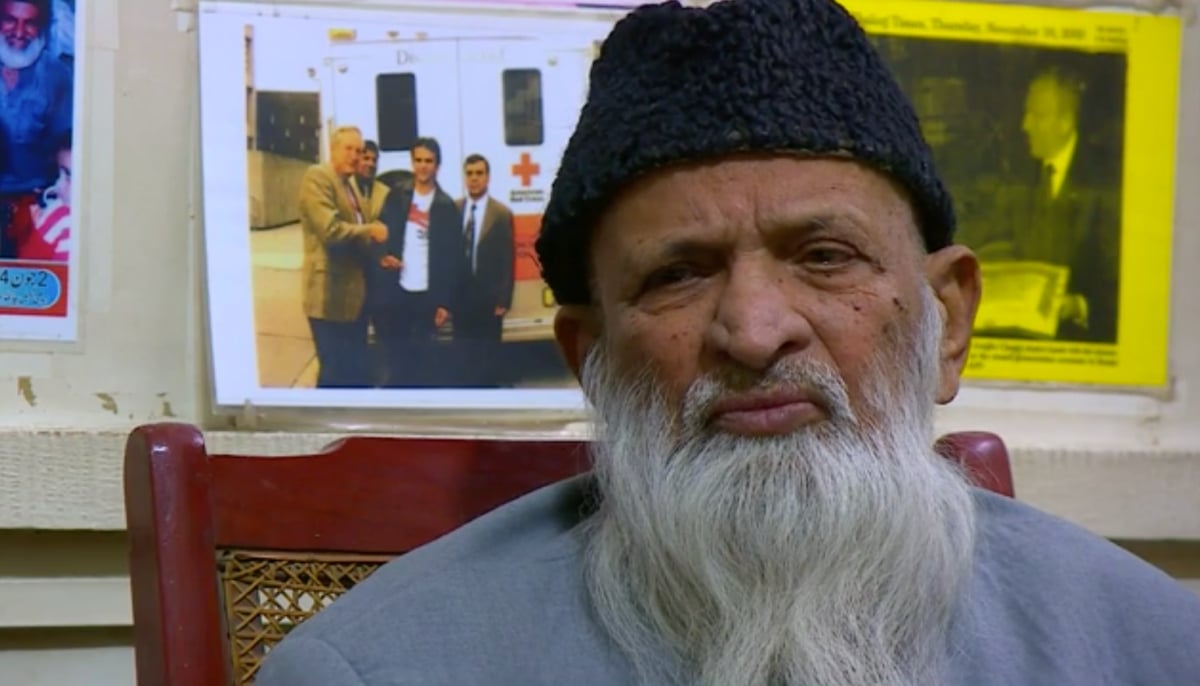
“Whether it’s The Kiran education Model or the Community Development Programs, the focus remains on empathy-first philanthropy — building trust, creating safe spaces, and ensuring that every act of giving carries dignity and love,” Khatri said.
Summing it up, Khatri said that she wished everyone to “embrace the spirit of Edhi — the raw, direct, heart-led service — keeping the soul of informal giving alive while creating pathways for lasting change.
Red tape & bureaucratism
Mentioning that his late father was firmly against bureaucratic inefficiencies, Faisal said Edhi sahib would always engage with the public directly to understand their concerns.
If an employee received frequent complaints, Edhi sahib would take immediate action to address the issue, shares Faisal, whose father always wanted to ensure that public service remained unaffected.
“It is crucial that those in power listen to the grievances of the people firsthand. Otherwise, officials working within NGOs often become bureaucrats in their own right, serving themselves rather than the public.”
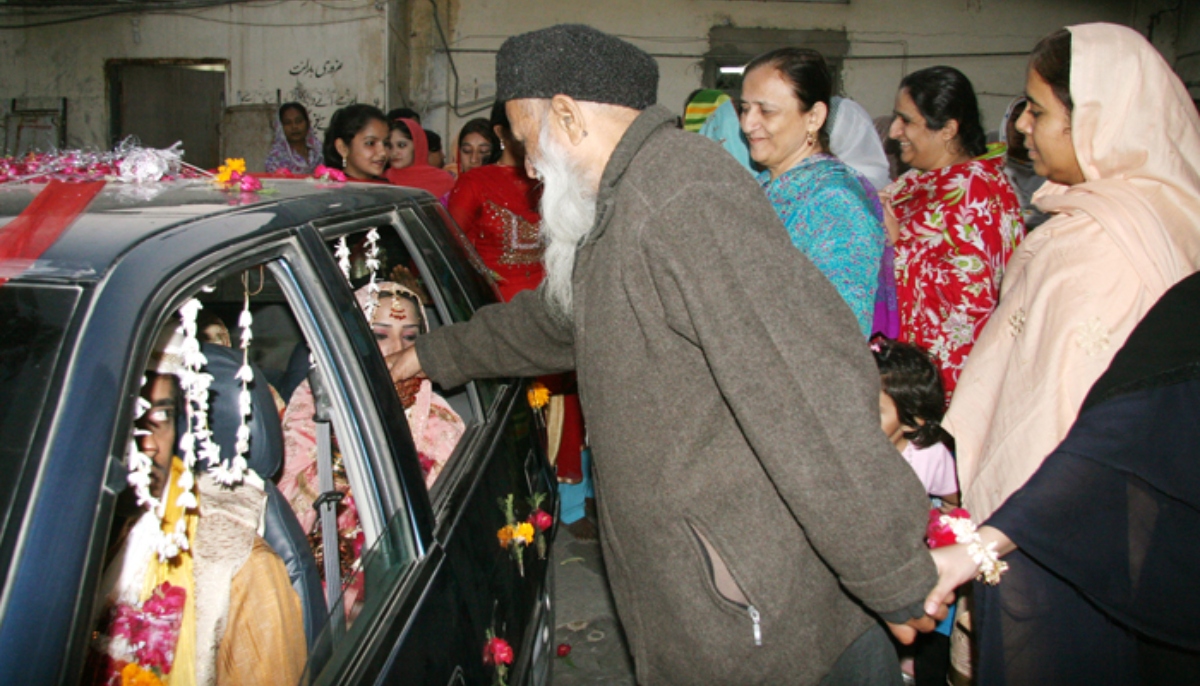
The question remains: Can Edhi’s simplistic, bureaucracy-free approach withstand the demands of today’s structured and regulated nonprofit sector?
Dr Bari, the founder and president of IHHN, says, “While Edhi sahib operated with radical simplicity, he was never dismissive of bureaucracy or formalities.
“To the best of my knowledge, he was highly transparent in his approach but firmly rejected unnecessary processes and red tape.
“His goal was to build a rapid-response charitable organisation, which required a system capable of responding swiftly.”
The IHHN chief recalled Edhi’s stance on fuel theft: “Edhi sahib explained that the cost of preventing the theft of a single litre of fuel — through manpower, systems, and monitoring — would be at least 100 times higher than the value of the fuel itself. So, he questioned whether it was worth worrying about.”
According to Dr Bari, the environment one operates in carries a high risk of fraud, waste, and abuse; however, as long as an organization strictly follows a zero-tolerance policy toward corruption, fraud, and misconduct, the system naturally aligns itself.
“No system is foolproof, and there will always be individuals who would attempt to exploit it for personal gain. But as long as you have strong systems in place and can demonstrate both personal and institutional transparency, that should take precedence over everything else.”
The KF’s Khatri says Edhi sahib’s approach to philanthropy was deeply informal, direct, and rooted in immediate action.
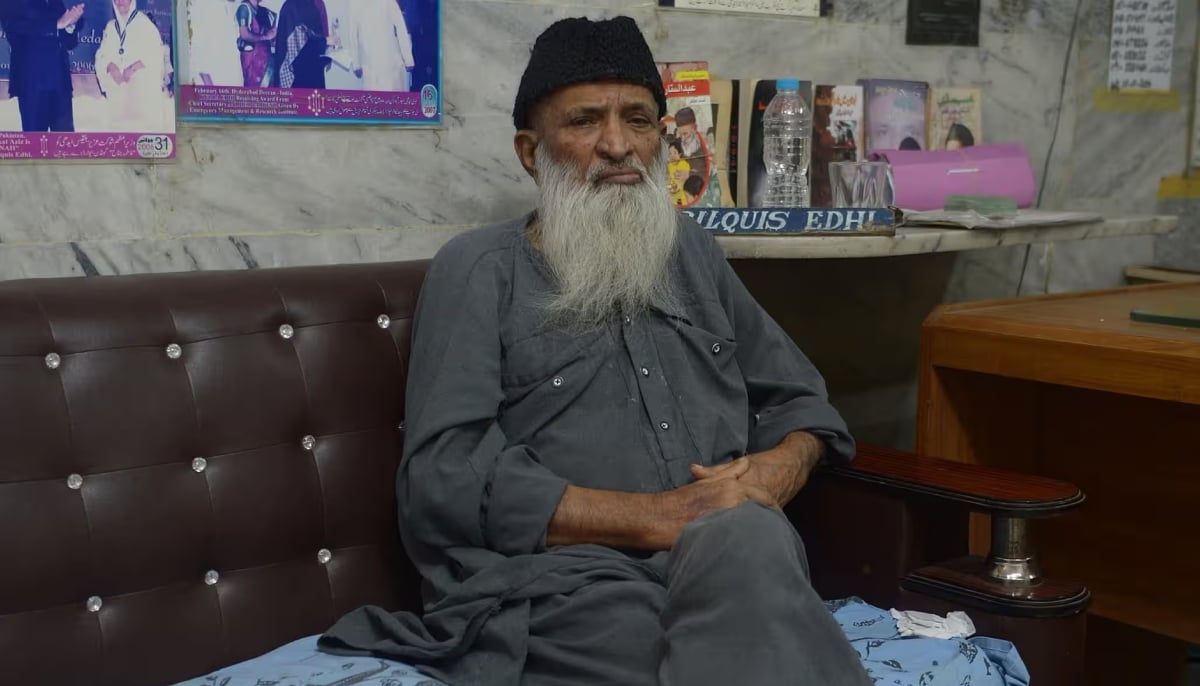
He didn’t wait for structures, committees, or bureaucratic approvals — if someone needed help, he simply provided it, according to her.
“Adhering to a philosophy based on trust, simplicity, and an unwavering commitment to human service, Edhi sahib often collected small donations from ordinary people rather than relying on large institutions, ensuring that giving remained accessible and collective.”
Secret to Edhi’s lasting impact?
After his father’s demise in 2016, it was his mother Bilquis Edhi, who carried her husband’s mantle forward, ensuring the foundation remained true to its values.
“Even after her passing, we continue to uphold their legacy of simplicity, honesty, punctuality, and hard work. As long as we remain steadfast in these principles, the Edhi Foundation will continue to grow and be trusted by the people. However, if we lose this connection with the public, the foundation risks the fate of NGOs that rely heavily on foreign donor funding,” Faisal said.
Speaking of Edhi’s minimalistic budget for publicity, Faisal explained that his father was extremely limelight-shy.
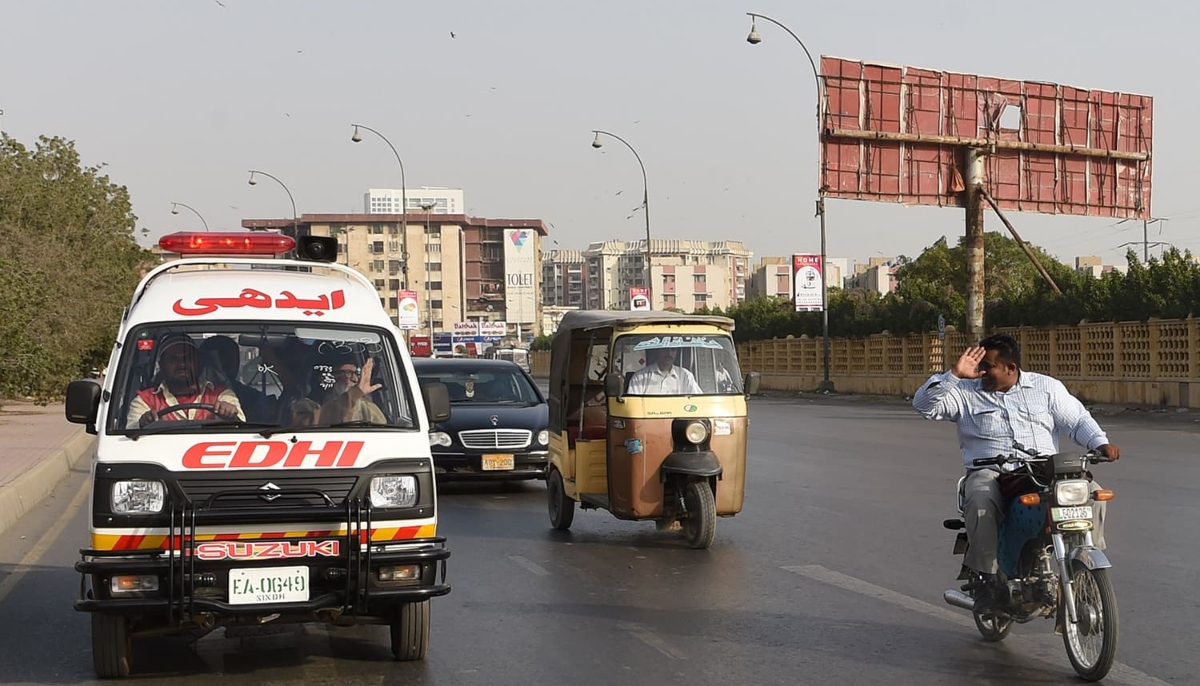
“Edhi sahib never spent money on advertisements, but print and electronic media continued to highlight his work because of his honesty and dedication. We continue to follow his policy of staying low on promotion.
“Many NGOs allocate excessive funds to marketing, which is unfair, as donations should be used for welfare, not promotions,” he said.
On why Edhi’s model is successful, Faisal mentions, Faisal said they did not have a rigid bureaucratic structure, nor did they allow one to take root.
“We succeed by keeping overheads low and directing more resources toward humanitarian services.”
Philosophy of trust, simplicity, service
One of Edhi’s biggest strengths has been and continues to be public trust. Do charities face any challenges today in maintaining that level of credibility and transparency?
Dr Muhammad Amjad Saqib (Sitara-e-Imtiaz), the founder and chairman of Akhuwat, speaks of challenges as an opportunity to improve and grow.
“For organisations working in the nonprofit sector, challenges related to raising funds and expansion are present, but through collaboration and mutual support, efforts are ongoing to create a sustainable environment for charities to flourish,” Dr Saqib stated.
On the other hand, Dr Bari stresses the importance of integrity and transparency for organisations to uphold their credibility, asserting that the establishments must walk the talk and be transparent.
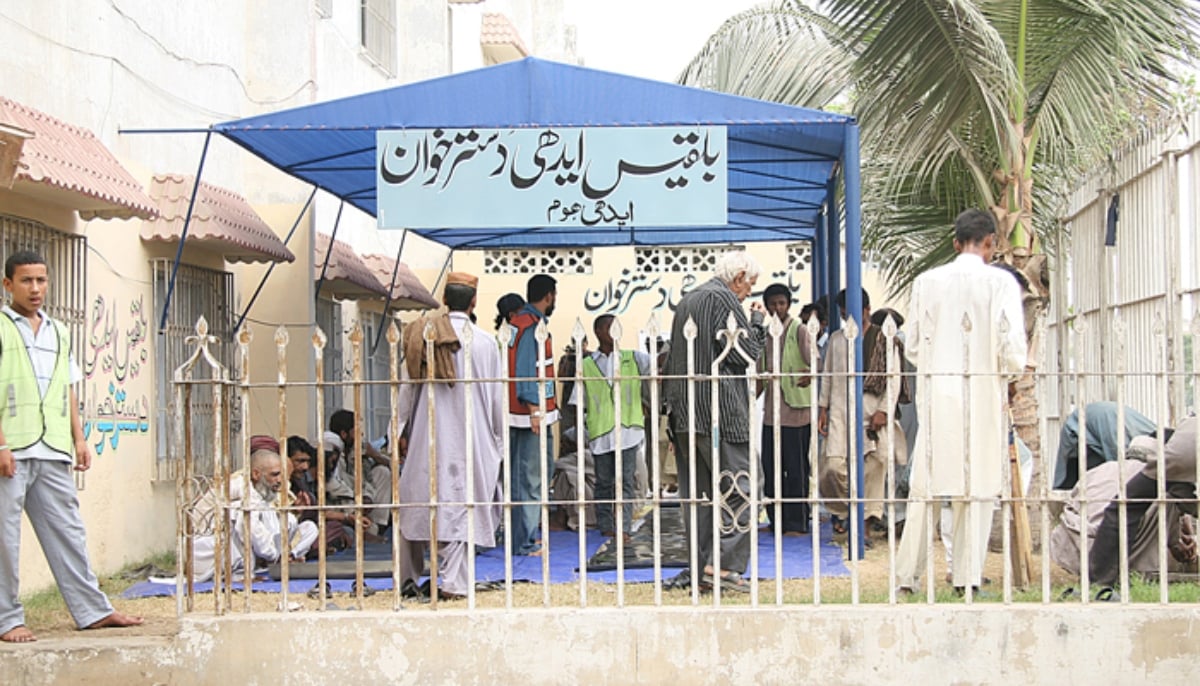
“Charities can showcase their transparency by revealing who audits them, whether they receive funding in the form of Zakat, and if they have implemented the necessary measures to declare themselves Shariah-compliant.
“Ultimately, trust hinges on two key factors: delivering on promises and maintaining a level of transparency that reassures stakeholders.
“Trust is earned through rigorous scrutiny — if an organisation lacks sincerity and loyalty, it is only a matter of time before it is exposed,” according to Dr Bari.
Dr Saqib believes that the philanthropic landscape of Pakistan has witnessed growth.
“However, the need for greater collaboration and transparency remains. By bridging this gap and working together, we can create a more equitable Pakistan for everyone and truly honour Edhi’s legacy,” says Dr Saqib.
"Edhi’s philosophy to serve humanity without discrimination has been an inspiration for Akhuwat and since 2001, we have been working to empower individuals regardless of their religion, gender, caste, ethnicity, or any other differences.
“For aspiring philanthropists and organisations in a sphere where social impact is becoming increasingly institutionalised, Dr Saqib has a message — to strive to adopt Edhi’s strategy to make a lasting impact.
"Edhi’s approach to serving humanity teaches us the need for empathy, integrity, and engagement with communities and to empower the communities, we first need to listen to their needs."
If Edhi were alive today, what areas of philanthropy – beyond ambulances and shelters — would he focus on in Pakistan?
Dr Bari mentioned Edhi’s particular affinity for orphanages. In view of Pakistan’s rapidly growing population, frequent natural disasters, and the impact of climate change, with the country continuing to face critical humanitarian needs, Dr Bari is certain, "Edhi sahib would have remained committed to immediate relief efforts, which became his niche, as well as long-term support through orphanages.
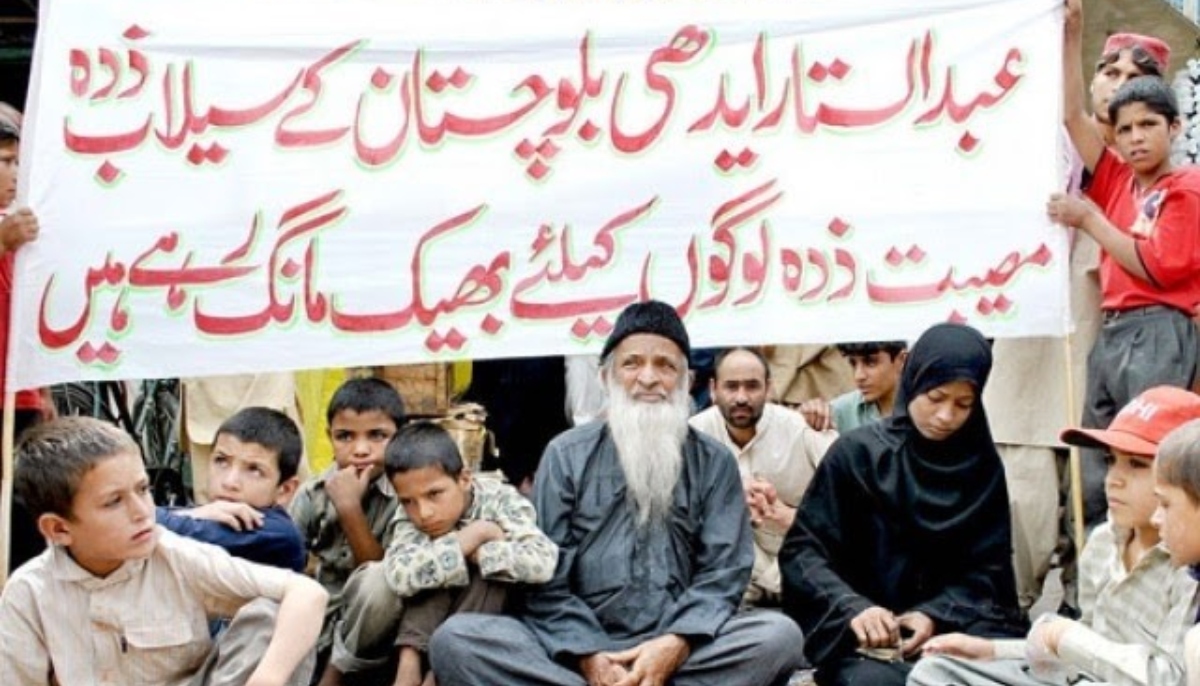
“Beyond that, I think he would have turned to areas of different partnerships that never existed at his time, like mental health and technology.
“I am sure he would have embraced the evolving areas of overall human well-being very strongly."
Moving away from Edhi-style giving?
With rising digital fundraising and Corporate Social Responsibility (CSR) initiatives, Dr Bari sees no major shift from Edhi-style grassroots giving in Pakistan.
"Yes, digital fundraising has emerged as a new vehicle, but it’s important to understand that we study the fundraising landscape closely and scientifically at IHHN.
“Our findings indicate that digital fundraising — particularly for charity and charitable causes — is neither a major nor even a medium-sized revenue stream at the moment.
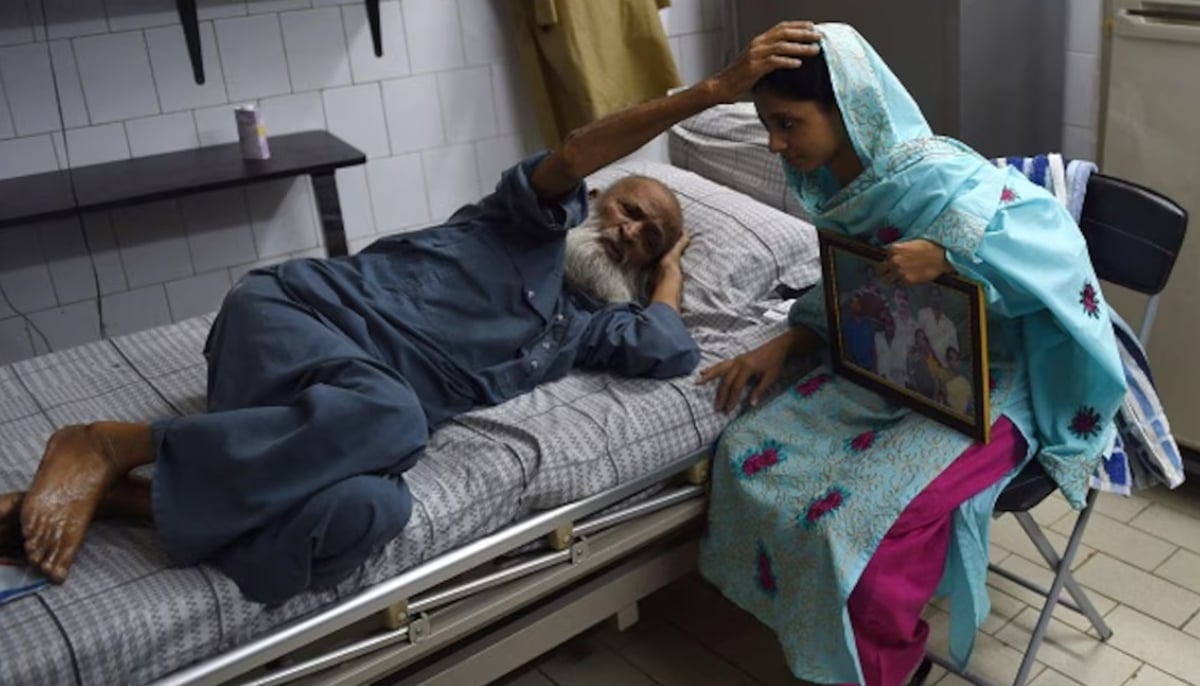
"However, as of today, I can say with absolute confidence that digital platforms are not a significant component of any fundraising stream.
“Internationally, since economies have largely shifted towards digital, the significance and stakes of digital fundraising are much higher.”
Speaking about CSR initiatives, Dr Bari states that while corporations in Pakistan are generous, he believes there needs to be significant reflection on CSR initiatives.
“While CSR does create a meaningful impact, it is sometimes spread too thin. This raises a debate between breadth versus depth, and I feel that health — particularly immediate relief —and some of the global and local climate-related changes should take precedence in terms of greater giving, followed by education,” he says.
Edhi’s view of today — through Faisal’s lens
When asked what would trouble Edhi sahib the most today, Faisal Edhi responds, “The rising poverty in Pakistan would have caused him immense pain and distress.
“World Bank’s Poverty Projections for Pakistan report 13 million people have fallen below the poverty line in 2024 alone.
“This is deeply distressing for me as well as for the well-wishers and dedicated workers of the Edhi Foundation.
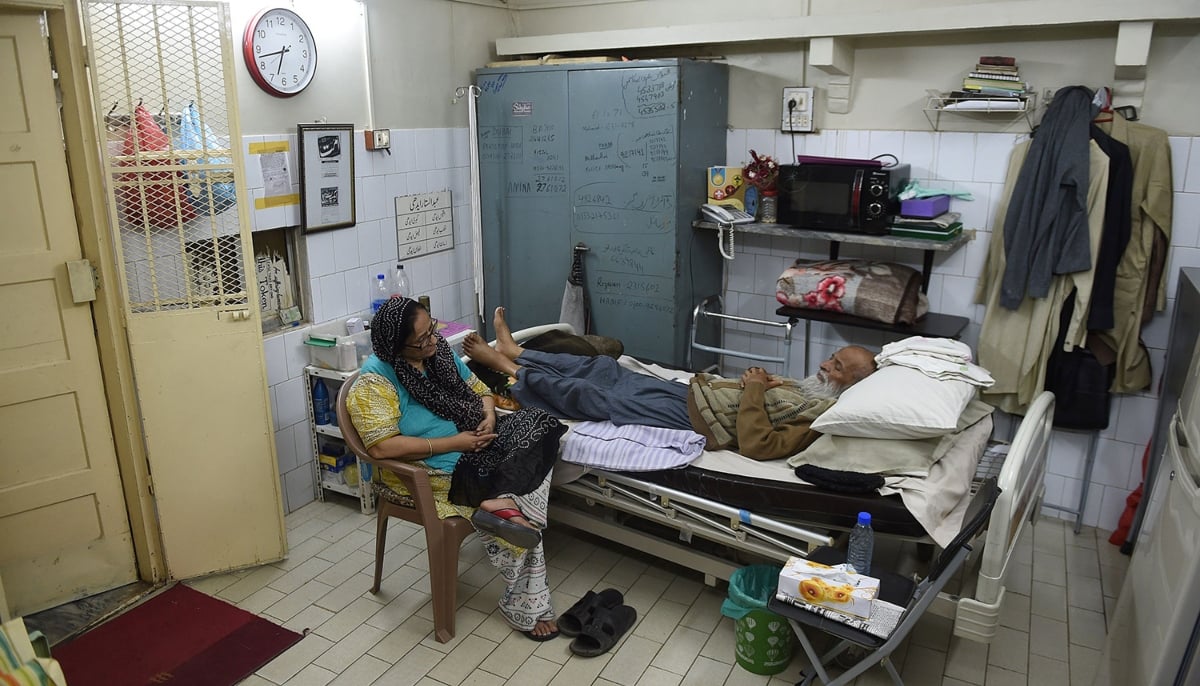
“We are constantly seeking ways to support those living in poverty and to strengthen small and cottage industries in Pakistan, enabling people to build sustainable livelihoods.”
The late humanitarian’s son, in his message to the country’s youth, urged them to adopt Edhi sahib’s principles and prioritise humanity over religious extremism or racial superiority, warning that such divisive ideologies do not serve humanity.
“Our youth should work for the betterment of Pakistan and humanity by rejecting prejudice and intolerance,” he said concluding the interview.
Mariam Khan is a freelance journalist and a UN volunteer. She tweets @mariaamkahn
Header and thumbnail illustration by Geo.tv



